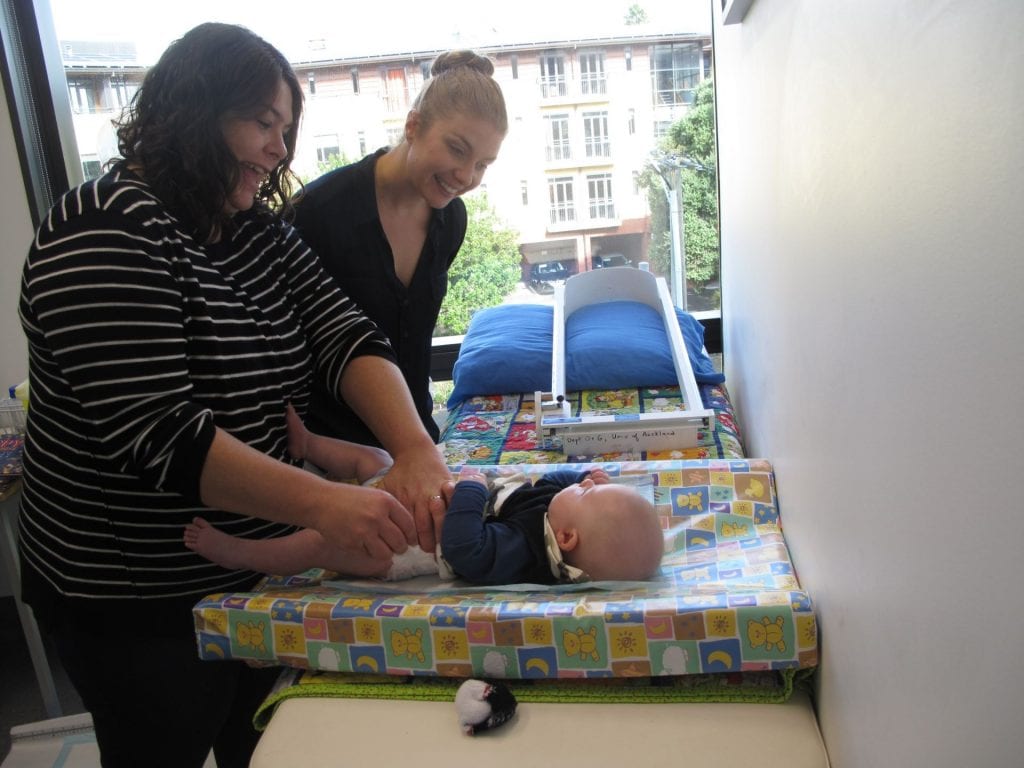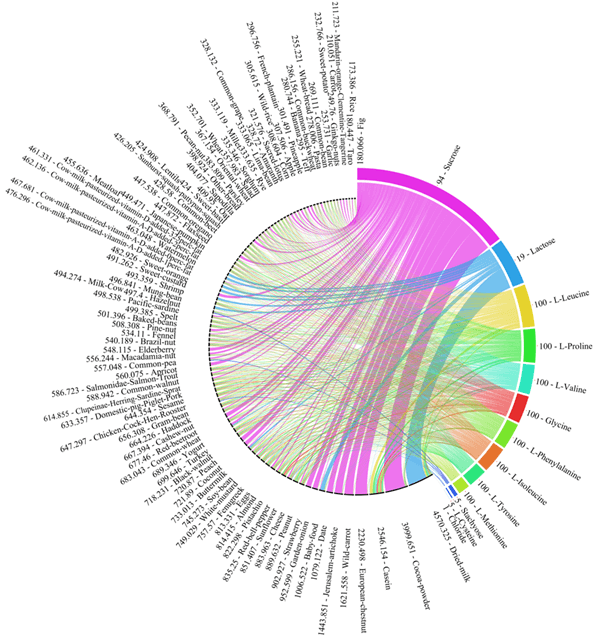At birth a baby’s digestive system is pristine and waiting to be rapidly colonised by millions of bacteria (microbiome). We know the health of a baby is linked to the health of its microbiome.The right balance and diversity of bacteria assist a baby to develop a strong immune system. If the balance is off, the child could be prone to illness. When a baby is introduced to solid foods for the first time, usually at around six months in New Zealand, the baby’s microbiome undergoes dramatic transformation. However how this change in diversity of the microbiome affects the babies health is not well understood.
This transition in infant microbiome is behind research funded by High-Value Nutrition’s Infant Health programme. In a key step members of the team have published a novel research technique that dramatically narrows the hunt for foods from New Zealand that can help infants build strong immune systems. The approach has already been used to identify potential foods for clinical trials to test weaning foods to boost infant immunity. The team calls their technique ‘reverse metabolomics’. The team conducted an extensive search of the research, 13,000 public domain scientific publications and identified 1657 papers related to the infant gut microbiome and immunity. They then looked at the food ingredients that the bacteria identified as boosting infant immunity fed on. This enabled the team to identify potential prebiotic foods suitable for infants.
A more traditional approach would see researchers trial potential foods with infants then do blood analysis to see if there was positive benefit. This technique, which uses machine learning and advanced big data techniques, is new to New Zealand. Infant Health programme principal investigator, Dr Clare Wall says,” This is a real world application of the Challenge’s Systems Nutrition approach. The shared approach across the Challenge research teams, means we take a holistic view that seeks to capture the complexity of the many systems that interact with and affect our health. The technique gives us a good idea of what the good bacteria are for infants. We also know what the best pre-biotic “feeds” are for these bacteria. We then looked for New Zealand foods that have these pre-biotic ‘feeds’.”
The Infant Health researchers have started the next step, a clinical trial called Nourish to Flourish. The goal is to establish ‘proof of concept’ with a food, before exploring other possible foods. Forty babies and their mothers have kindly agreed to take part.. The trial runs for six months, until the babies reach 12 months of age and is due to be finished early next year. Former Challenge Chief Scientist Dr Martin Kussmann designed this approach along with the collaborators. Researcher Dr Biju Balakrishnan, who worked on the reverse metabolomics technique with colleagues in Italy says once proof of concept is determined, the team can apply the technique to sift through a broad range of New Zealand foods that could potentially offer health and wellbeing benefits.
The New Zealand team that comprised of researchers from the University of Auckland, AgResearch, Riddet Institute and Malaghan Institute of Medical Research worked together with the University of Trento Centre for Computational and Systems Biology in Trento Italy and the Department of Computer Science, University of Pisa for developing this reverse metabolomic approach.
The paper, A reverse metabolic approach to weaning: in silico identification of immune-beneficial infant gut bacteria, mining their metabolism for prebiotic feed and sourcing these feeds in the natural product space, has been published in the journal Microbiome.

